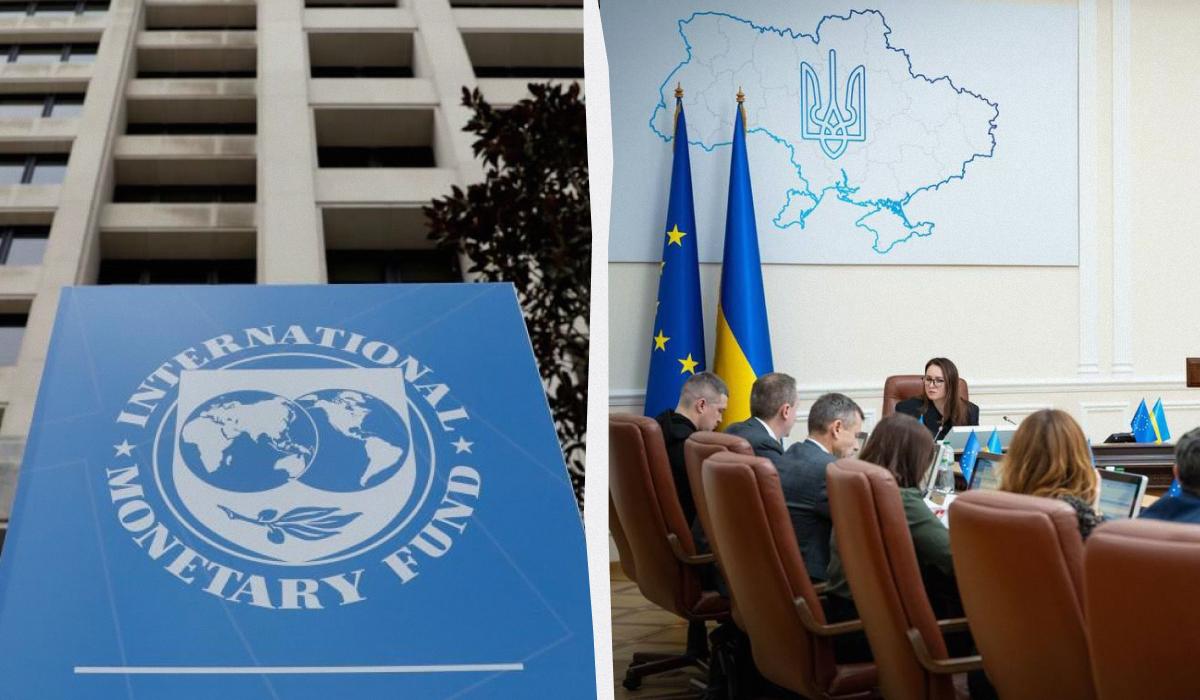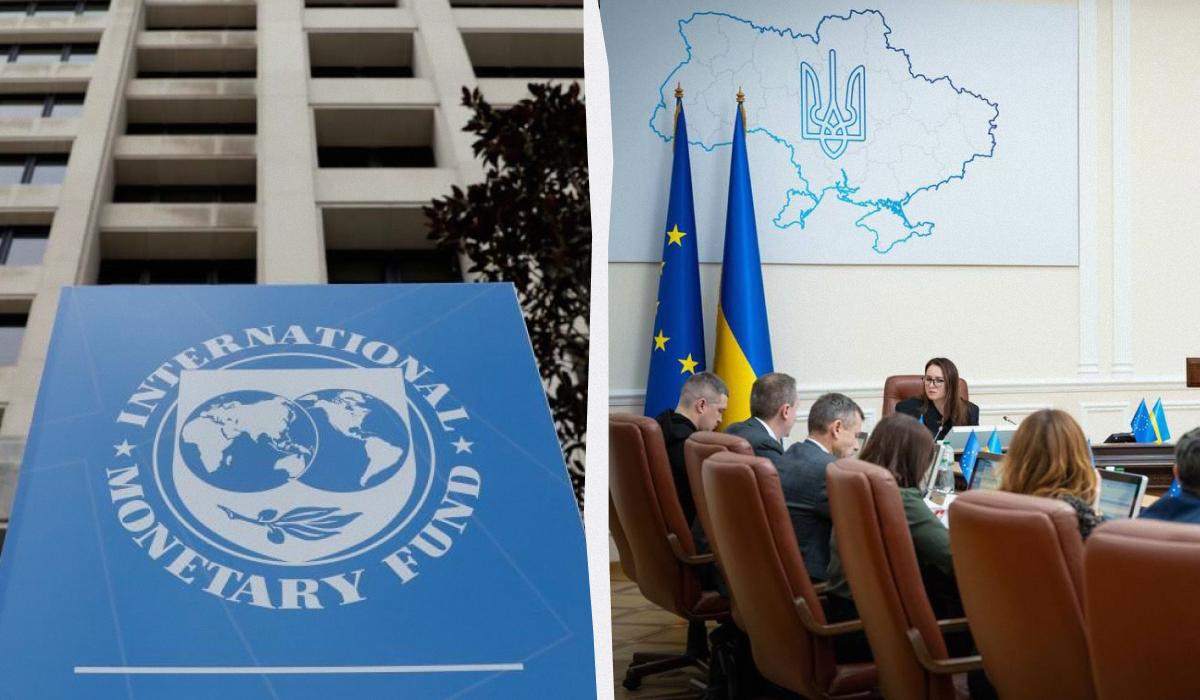“The International Monetary Fund is concerned about Ukraine’s budget measures before granting a new loan.”, — write: www.unian.ua
The International Monetary Fund is concerned about Ukraine’s budget measures before granting a new loan.
 The IMF does not understand the logic of the Ukrainian government/ UNIAN collage, photo Reuters, Telegram/@svyrydenkoyThe International Monetary Fund expresses concern about a number of budget measures in Ukraine amid the start of negotiations between the parties on a new four-year credit package, which could amount to 8 billion dollars, writes Bloomberg.
The IMF does not understand the logic of the Ukrainian government/ UNIAN collage, photo Reuters, Telegram/@svyrydenkoyThe International Monetary Fund expresses concern about a number of budget measures in Ukraine amid the start of negotiations between the parties on a new four-year credit package, which could amount to 8 billion dollars, writes Bloomberg.
The IMF makes a number of tough demands on the Ukrainian government. The creditor demands from Kyiv an increase in gas prices for the population, cancellation of benefits for FOPs and devaluation of the hryvnia.
According to the publication’s sources, tax benefits, in particular for the processing industry of Ukraine and self-employed entrepreneurs, caused concern in the IMF. The creditor claims that these measures risk having a negative impact on Kyiv’s already unstable financial situation.
So the IMF wants Kyiv to reduce the shadow economy, which is estimated to account for more than 30% of economic output, including by eliminating tax breaks for self-employed entrepreneurs.
According to Bloomberg sources, as the negotiations progress, one of the IMF’s demands for Kyiv will be to abandon the practice of preferential gas prices for consumers as part of the move to liberalize the gas market.
Increased Russian attacks have wiped out almost 60% of Ukraine’s domestic gas production, prompting Kyiv to seek an additional 1.9 billion euros ($2.2 billion) in aid to boost gas imports over the winter.
The IMF also continues to pressure the authorities to seek a faster devaluation of the currency, which will contribute to the growth of revenues denominated in the hryvnia. As Bloomberg News reported last month, officials of the National Bank of Ukraine oppose this proposal, which risks causing public outrage.
The fund also disagreed with the proposal to provide Ukrainians with free rail travel up to 3,000 kilometers under the UZ-3000 program.
Strict demands of the IMF to UkraineLast month, the fund convinced Ukrainian officials to significantly increase forecasts for Kyiv’s funding needs. The lender pegged the figure at about $65 billion by the end of 2029, with the bulk likely to be needed over the next two years.
In August, the IMF expressed concerns about the tax legislation in a letter to the head of the parliamentary finance committee, Danylo Hetmantsev.
Negotiations with the IMF have become more urgent as the country depends on international donors for funding, including funding for health care and pensions, so that domestic revenues can be channeled into Kyiv’s war effort.
The government originally planned to get IMF approval for the new program by the end of the year, but that is likely to happen in January. The IMF will first demand that the European Union implement a plan to use the frozen assets of the Russian central bank to support Ukraine’s credit financing. The EU plans to push this forward in December; failure could jeopardize the financing of Ukraine by the IMF.
Ukraine’s needs in external financingAccording to The Economist’s calculations, Ukraine may need $389 billion in foreign support in the next four years alone. The main financial burden will fall on the EU countries and Great Britain, which will need to double the financial assistance to Ukraine.
Earlier it was reported that the IMF loan to Ukraine for 8 billion dollars is in question due to the slow actions of the EU regarding Russian nuclear weapons. The European Union must first provide Ukraine with “reliable” financial obligations, which can be used, including the frozen assets of the aggressor. Lending by the IMF, in turn, usually serves as a “litmus test” for the provision of support to the country by other creditors.
At the same time, without Russian assets, the EU will not be able to meet Kyiv’s financing needs, despite the fact that it is considering several alternatives, economist Oleg Pendzin tells UNIAN. To help Ukraine next year, Europe will be forced to use three types of sources at once, the specialist is confident.
You may also be interested in news:
- Gold updated its maximum, silver significantly increased in price: how much is a gram of metal worth
- Inflation is slowly gaining momentum: the State Statistics Service reported that prices rose the most
- The price of the dollar fell in “PrivatBank”: current exchange rate for November 12
